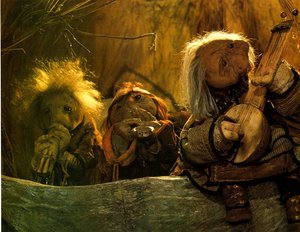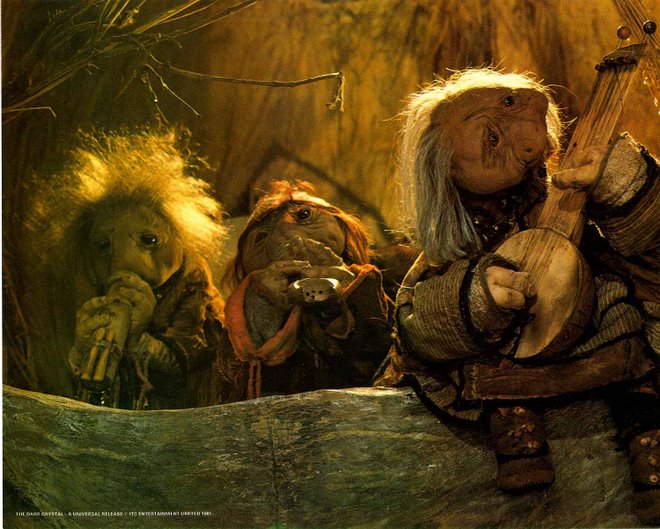
Here we are with our first interview on our author interview page with Mr. "Bobo" King...he's kin to Larry King somewhere in the line...no, really.
We have author Stephanie Jarrett with us to give us her views of POD publishing and writing in general. Her first novel, "When an Angel Falls," has received a very good review here at PODLINGS and so we decided to pick Mrs. Jarrett's brain a bit for your enlightenment.
---------------------------------------------
1.) Mrs. Jarrett, you've got a very entertaining story here. Did you ever go through the submission process with agents and publishers? What led you to the decision to self publish?
Thank you. Yes, I did initially go through the ‘traditional’ route, though I only spent about six months collecting rejection letters. The list for agents and small publishers who might be interested in my story was very limited. There were many agents and small publishers who specialized in stories with religious themes, but they also targeted particular religions. This was a problem for me because my story didn't embrace the perspective of any one religion, so I was limited to querying people who included ‘spiritual’ as one of their interests. I admit that I failed to do research before committing to my story to see if there was a market for it. Actually, this wasn't even the story I had originally set out to write. I began my second attempt at writing (after a twenty-five year hiatus) with a mainstream (formula) murder/mystery. Somehow I got sidetracked. After my first couple of rejection slips, I happened across a blog called Evil Editor ( http://www.evileditor.blogspot.com/). While attracted to his wit and talent, I was intimidated by the criticism that was given to other writer’s query letters and opening chapters. Understanding that being able to accept criticism is vital in the publishing industry; I bit the bullet and submitted a sample of one of my query letters. From that experience I learned that negative criticism wasn't quite as painful as I imagined, and the constructive input far out-weighed any sting to my ego. That experience also reaffirmed what subsequent rejection letters would state. My book was not “marketable”. I was now faced with a decision that I'm sure many writers have had to deal with. Do I slide this manuscript under my bed and go on to another project, or should I self-publish? I decided to self-publish because having my manuscript in book form was the easiest way to get my story to family and friends who would, hopefully, give me what I felt I needed the most…criticism.
2.) Since you self published the novel and did the cover and editing yourself, I'm curious why you decided to publish with iUniverse when a site like lulu.com is free except for the $150 to get worldwide distribution?
Once I made the decision to self-publish, I studied the subject on the Internet. Cost was a major factor in my decision, and I had narrowed it down to iUniverse or Lulu. What may very well be laziness, I attributed to age. At age forty-eight, I don't have my whole life ahead of me. I'm actually over the hump and coasting down the slope toward the inevitable end. Technology is getting harder for me to reach out and grasp as the rate of my descent increases. After studying the Lulu website, I came to believe that this was for people who were ambitious and talented enough to truly self-publish. I didn't think I could handle this. My first clue came when I had to admit that I had absolutely no idea how to format a manuscript. iUniverse advertises itself as “supported self-publishing”. I knew I needed support. What I did like about Lulu was the price of the service (obviously). I also liked the idea of being able to select my own book price. The iUniverse book prices (and POD in general) are too expensive. I encouraged anyone who wanted to buy my book to consider paying the six dollars and downloading the e-book version. One other thing I liked about Lulu was the window that was linked to each book. It has an ‘Amazon’ look to it that is all too familiar to me since most of my books are bought from the Internet these days. The major negative point I would make about Lulu is that I do not have the option to review many of the books listed. If I can't open the book and read the first few pages on-line (no different than I would if I were standing in the bookstore), then I probably will choose not to buy the book. This is especially true if I am going to be paying more for the book than I would normally pay at a bookstore. I enjoyed my experience with iUniverse. I am especially grateful for the prompt and courteous customer support that is offered by the company. I chose a basic package ($499) because I felt, since my book was not marketable, there was no need to invest any more money into. No amount of money spent on professional editing and an attractive cover design was going to change the fact that I had written a book about a subject that was not interesting. I signed on during an iUniverse promotion that gave me a total of twenty-five free books. I figured this would give me enough to hand out to family and friends, who had promised me honest criticism so I could improve upon my next writing project. I had no illusions that I would earn back the money I spent on the book, and I really didn't expect it to be read by people I didn't know. I was wrong about that.
3.) Many people within this industry would say, "don't bother self publishing. Just shelve the manuscript and write something the New York publishers will want." How do you feel about self publishing, good or bad and would you do it again?
There are many reasons a writer chooses to self-publish. Some writers never intended to traditionally publish from the very beginning. There will always be a market for niche books, and POD technology is the perfect solution to supplying these markets, whether you start your own small publishing business, or self-publish with varying degrees of assistance from what has come to be known as POD publishers (iUniverse, Lulu, etc.). Since my book was rejected by the traditional publishing industry, the assumption would be that it is not worth publishing. In my case, that very well may be true, but I don't think this holds for all books that have been rejected by traditional publishers. I have read some very good POD published books. I suppose there is the hope by some POD authors that if they just get their book in print ‘someone’ will discover it. While it’s entirely possible, I'm not sure it is probable at this time. Assuming that there is an agent or publisher interested in what lies within the heap of POD books, weeding through them all would be a daunting task. I'd like to see POD publishers (iUniverse) add a new feature to the way they list their books. I would like to be able to access any month throughout the year and look through all the books that were published during that month. Another way to keep from having to sift through the same books to find the newer titles is to list the books under their genre, starting from the most recent release date, instead of alphabetical order. I think more people (and possibly an agent or two) might take a stronger interest in POD books if the search options were a little better organized. One of the first things I was asked to consider when I started the process of publishing through iUniverse was: “What are your publishing goals?” At the time my goal was to be able to give a copy of the book to family and friends and have it available as an e-book, should their interest exceed the number of copies I received. Upon choosing this publishing package, I was taking full responsibility for poor editing of the book, and especially for the terrible cover. Yes, I did that. I enjoyed my POD experience, and would do it again.
4.) If you self published again, would you do anything differently?
Oh yeah. Even as I was handing out my book, with instructions on the kind of feed back I wanted, I was asking people to tell someone else about the book if they liked it. I have no idea what I was thinking, and I have no excuse for my lack of foresight. When a friend of a friend told me that they had recommended my book to their neighbor, and that he had ordered it through the Internet, I was mortified. Only then did it sink in that people I didn't know would be paying (too much) money for an unprofessional product. This was not the first impression I wanted to give people about myself, or my work. I won't make that mistake again.
5.) On to the story. When an Angel Falls, has a very richly designed spiritual realm. Is there any particular reason you decided to design it apart from a strictly "biblical" framework?
The concept of angels, or Heavenly intermediaries, shows up in many different religions. I chose to incorporate different religious philosophies in the hope that it would appeal to a broader audience. I know I run the risk of offending some people, but that was never my intention. I have found that people, even if they claim the same religious denomination, have differing opinions on the purpose of their life on Earth, what happens to them after they die, and even on the nature of Heaven and Hell. My hope was that the reader would recognize enough of his own beliefs to hold his interest, while focusing on the fact that the story was centered upon a human/ spiritual condition that affects all of us, regardless of our religious beliefs. This story was an attempt to explore the emotion of shame, and the concept of forgiveness.
6.) How would you sum up the key message you hope readers will take away from the story?
Any attempt to sum up my key message would only be adding unnecessary words to what has already been succinctly stated by Alexander Pope. “To err is Human, to Forgive, Divine.” (An Essay on Criticism)
7.) As a writer, do you find yourself to be very structured and disciplined or are you a spur of the moment, when the mood hits sort of writer?
I am a very unstructured and undisciplined writer. I had to enlist the help of four people (family and a friend) to place time frames on me. They were brutal, but their methods were effective. I rarely missed the deadlines they set for me on completing a chapter.
8.) What can we expect to see from Stephanie Jarrett in the future?
I'm attempting to revisit the mainstream (formula) murder/mystery that I had originally started, but already my mind is starting to stray. If I give in to this impulse and produce another (out in left field) unmarketable book, I’ll certainly consider POD publishing again. I would like to thank PODLINGS, and Mr. "Bobo" King (yes, I know he’s a monkey) for asking me to share my POD experience. I have learned so much from this site, as well as the other blogs on POD publishing. I had no idea there was so much help out there for POD people. I have also learned about the different services that people provide for book cover design. Thanks again for helping me improve my writing and my finished product.



1 comment:
i have been fortunate to have read this book and loved it. i feel that though the cover is lacking if you can get past that there is an amazing story to be told. this story was brilliantly written and held my attention through out its entirety. no other author has been able to suck me into a book like this one has. its a shame you cant find this book inside a bookstore or in oprahs book club..i believe that more people should have the chance to read this book because we all can relate i'm sure...i hope to see more from this author..and again...absolutely brilliant!!
Post a Comment